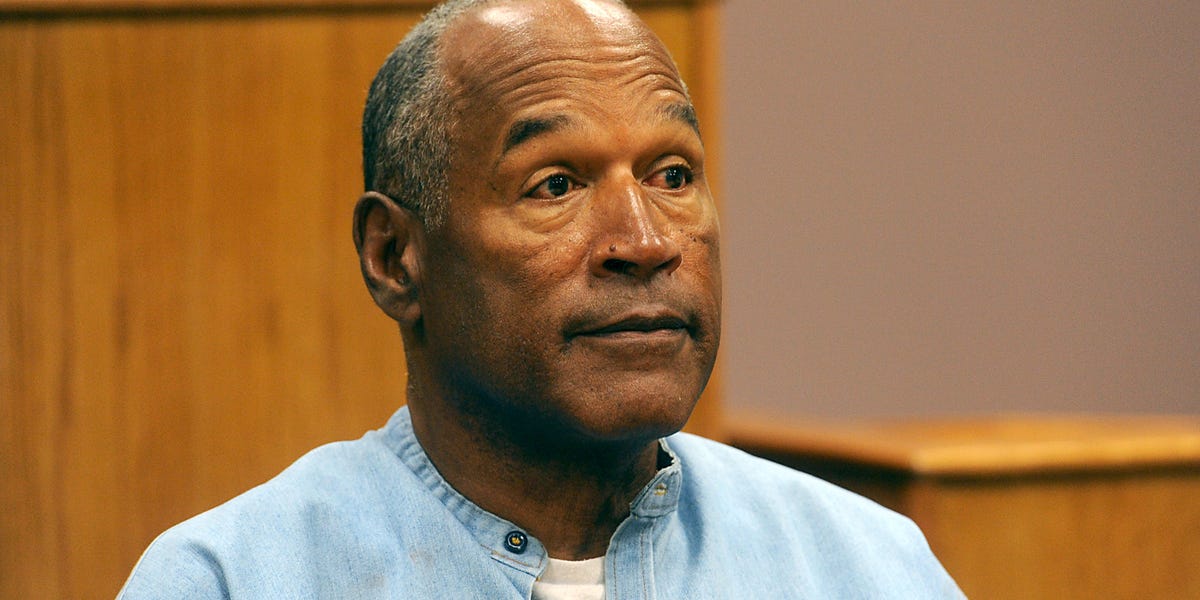Orenthal James Simpson, better known to the world as O.j. Simpson, is a name that evokes both admiration and controversy. He rose to fame as a talented running back in the Nfl, captivating audiences with his speed and agility on the gridiron. His athletic prowess earned him numerous accolades, including being named the Nfl’s Most Valuable Player in 1973. But Simpson’s life story took a dark turn when he became embroiled in one of the most sensational criminal cases in American history.
The O.j. Simpson biography is a complex tapestry woven with threads of triumph and tragedy. While his early years were marked by promise and success, culminating in a legendary football career, his later life was overshadowed by legal battles and public scrutiny. The 1994 murders of Nicole Brown Simpson and Ronald Goldman thrust him into the National Spotlight, igniting a media frenzy that captivated the nation. His subsequent trial became a defining moment in American history, highlighting racial tensions and the complexities of the justice system.
Early Life And Football Career
Orenthal James Simpson was born in San Francisco, California, on July 9, 1947. His early life was marked by both joy and hardship. He grew up in a working-class neighborhood and developed a passion for sports at a young age. Football became his escape and his calling. He excelled in high school, showcasing his raw talent and athleticism that would later make him a legend.
Simpson’s Early Life was shaped by the challenges he faced growing up in a predominantly African American community. Despite these obstacles, he persevered with remarkable determination. His natural abilities on the football Field Became Undeniable, leading to a scholarship at The University Of Southern California (Usc). At Usc, Simpson continued to shine, becoming a standout running back and earning All-American honors. His college career was a testament To His Dedication, skill, and unwavering commitment to the sport.
Rise To Fame And Acting
Simpson’s exceptional talent on the football field propelled him to stardom in the Nfl. He was drafted by The Buffalo Bills in 1969 and quickly became one of the league’S Most Electrifying Players. His powerful runs and impressive agility thrilled fans across the country, solidifying his place as a legend in the history of American football. He led the Bills to numerous playoff appearances and earned several Pro Bowl selections, cementing his legacy as a dominant force on the gridiron.
After retiring from professional football in 1979, Simpson sought new avenues for his talents. He transitioned into acting, appearing in films and television shows. His charismatic personality and recognizable face made him a popular figure in Hollywood. While he didn’t achieve the same level of success as he did on the Football Field, he carved out a respectable career in entertainment. His foray into acting demonstrated his versatility and willingness to explore new challenges beyond the realm of sports.
The 1994 Murders And Trial
The year 1994 marked a tragic turning point in O.j. Simpson’S Life. On June 12th, Nicole Brown Simpson, his ex-wife, and Ronald Goldman were found murdered outside her condo in Los Angeles. The gruesome crime sent shockwaves through the nation and immediately thrust Simpson into the center of a media frenzy. He became the prime suspect in the case, and public opinion was deeply divided.
The ensuing trial captivated the country for months. It unfolded in a courtroom filled with intense scrutiny and national attention. The prosecution presented a compelling case against Simpson, highlighting evidence linking him to the Crime Scene. However, the defense team, led by Johnnie Cochran, successfully cast doubt on the evidence and raised questions about police misconduct. Ultimately, the jury acquitted Simpson of the murders, sparking widespread debate and controversy over the verdict.
Civil Suit and Later Legal Troubles
Despite his acquittal in the criminal trial, O.j. Simpson faced further legal consequences. In 1997, he was found liable for the deaths of Nicole Brown Simpson and Ronald Goldman in a civil court. The jury awarded damages to the victims’ families, holding Simpson responsible for their tragic loss. This verdict underscored the gravity of his actions and the lasting impact they had on those involved.
 Is Wayne Newton Still Alive? Mr. Las Vegas Legacy Continues
Is Wayne Newton Still Alive? Mr. Las Vegas Legacy ContinuesSimpson’s legal troubles continued beyond the Civil Suit. In 2008, he was arrested and charged with armed robbery and kidnapping in Las Vegas. He was found guilty and sentenced To Prison. This marked a dark chapter in His Life, further tarnishing his already tarnished public image. The O.j. Simpson biography serves as a cautionary tale about the perils of fame, the complexities of the justice system, and the enduring consequences of one’s actions.
Legacy And Public Perception
O.j. Simpson’s legacy remains a complex and Controversial One. He is remembered as both a brilliant athlete who captivated audiences with his skills on the football field and a figure whose life was marred by tragedy and legal turmoil. His story continues to fascinate and Divide Public Opinion, Sparking Debates About Race, justice, and the nature of fame.
The events surrounding Simpson’s life have had a profound impact on American culture. His case became a defining moment in the nation’s history, highlighting racial tensions and the complexities of the legal system. The trial itself was a media spectacle that captivated the world, Raising Questions About Celebrity, justice, and the role of race in Shaping Public Perception. Simpson’s story serves as a reminder of the enduring power of fame and the fragility of human life.










